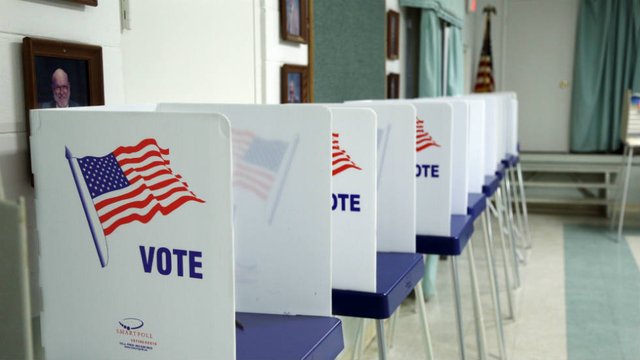The US Should Have Compulsory Voting in General Elections

PRO (3 arguments)
Definitions:
Compulsory voting - our compulsory voting system would reflect the Australian system, where all voters must attend the polling booth but have the option to vote “No decision” or “abstain”
General election- a national or state election
Weighing Mechanism: The judge should vote for whichever side best improves how the election process currently works, in terms of creating a more fair election.
In all democracies around the world voter apathy is highest among the poorest and most excluded sectors of society. Since they do not vote, the political parties do not create policies for their needs, which leads to a vicious circle of increasing isolation. By making the most disenfranchised people vote, the major political parties are forced to take notice of them.
William Galston of the Brookings Institution argues that mandatory voting would temper the polarization of our politics. In today’s electorate he writes, “hardcore partisan believers are over-represented; independents and moderates are under-represented. If the full range of voters actually voted, our political leaders, who are exquisitely attuned followers, would go where the votes are: away from the extremes. And they would become more responsive to the younger, poorer and less educated Americans who don’t currently vote.” This idea was affirmed in a groundbreaking 2012 study by Professor Elizabeth Cascio of Dartmouth College. In her study, she found that the implementation of mandatory voting in nations in the past, saw an immediate increase in minority-favored legislation getting passed. Specifically, the study calculated that in the ten years after voting was made mandatory in Australia, Mexico, and Argentina, there was a 14% increase in minority-based legislation or reforms that favored minority groups than before mandatory voting. Furthermore, in a 2004 study of 15 countries where compulsory voting exists, by Dr. Lisa Hill of the University of Adelaide, the average turnout rate increased by 30.4% once a mandatory voting was implemented. This was especially seen in low-income, minority-based communities where the average voter turnout went from a 58.6% to an average of 93.7% in the studied countries. This enormous increase in turnout was directly caused by compulsory voting and helped to drastically increase representation for lower income, usually forgotten minority groups.
Brookings Institute, Dartmouth College
It will make people take elections as well as candidates more seriously. Compulsory voting would compel the people to be more proactive in building a government that will serve the majority, not only a few groups. This will lead to a better and more united nation.
Mandatory voting creates more economic reforms that favor and benefit minority groups. In a 2013 study by Professor of Political Science at Loyola University Chicago, Vincent Mahler, concluded that a 1% increase in voter turnout led to a 3% reduction in income inequality since new legislation favored the poor. This is incredibly impactful, since reducing income inequality directly benefits minority groups who disproportionately earn less and are treated worse in the current system.
A democracy is government by the people, not just 50% of the people. If only half of eligible voters actually vote, this negates the purpose of our democracy and delegitimizes elections.
According to Pew Research Center, the US was 31st out of 34 industrialized countries in voter turnout in 2012 elections. Compulsory voting will drastically increase this number. In Australia, for example, which has had compulsory voting in federal elections since 1924, turnout soared to 91 percent in the first compulsory voting election. In recent elections, it has hovered around 95 percent. The law also changed civic norms. Australians are more likely than before to see voting as an obligation. The negative side effects many feared did not materialize. For example, the percentage of ballots intentionally spoiled or completed randomly as acts of resistance remained on the order of 2 to 3 percent. In recent decades, about 5% of voters are typically asked to explain their absence on polling day. Surveys consistently indicate that about 70% say they favor compulsory voting, and 80% say they would still vote even if voting was not compulsory.
CNN